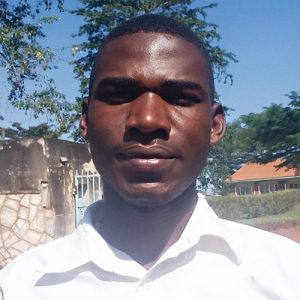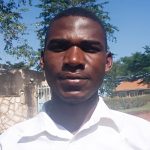The hand-dug well in Alimugonza Community is in need of repair. It was constructed 5 years ago but is not working efficiently due to lack of maintenance by the community. Community members no longer have to travel long distances to access water, but a rehabilitation is crucial to ensure that the water they collect from this well is safe.
Since this area is home to thousands of people, not everyone is able to use this well, and so we are working to rehabilitate and install other water points here.
This community has backslid on its level of sanitation over the past 5 years. There is some knowledge in the community about improved hygiene and sanitation from past trainings, but they are not putting that into action.
More than half of households have pit latrines, which mean open defecation is still an issue in this community. There are very few improved pit latrines and no handwashing stations.
Most people here are peasant farmers. It is the rainy season in Masindi and this is the time when people are mostly planting their crops. During this season they go to gardens and return home around midday. They rest and eat lunch with their children who come back home from school.
Thereafter some go back to the garden to work until late in the evening. The men tend to go for social activities while women remain home for household chores. The men come back later to eat dinner and sleep.
Here’s what we’re going to do about it:
Training
Training’s main objectives are the use of latrines and observing proper hygiene practices since these goals are inherently connected to the provision of clean water. Open defecation, water storage in unclean containers and the absence of hand-washing are all possible contaminants of a household water supply. Each participating village must achieve Open Defecation Free status (defined by one latrine per household), prior to the pump installation for a shallow hand-dug well.
This social program includes the assignment of one Community Development Officer (CDO) to each village. The CDO encourages each household to build an ideal homestead that includes: a latrine, hand-washing facility, a separate structure for animals, rubbish pit and drying rack for dishes.
We also implement the Community Led Total Sanitation (CLTS) approach with each of our village partners. This aims to improve the sanitation and hygiene practices and behaviors of a village. During these sessions, village leaders naturally emerge and push the community to realize that the current practices of individual households – particularly the practice of open defecation– are not only unhealthy but affect the entire village. CLTS facilitates a process in which community members realize the negative consequences of their current water, sanitation and hygiene behaviors and are inspired to take action. Group interactions are frequent motivators for individual households to build latrines, use the latrines and demand that other households do the same.
Rehabilitated Well
The community will participate in excavating and constructing the water source. The actual well construction will take four to six weeks if there are no challenges. The well will be lined with bricks and sealing clay and finished with a Consallen pump.
We are also rehabilitating another hand dug well and building two more wells for the community!
Improved Sanitation
The aim is that all households own an improved latrine. Many households do not use a latrine but use the bush. Due to open defecation, feces are spread all over the village. This leads to waterborne diseases and contamination of groundwater and surface water. Our aim is that the community is able to live a healthy life free of preventable diseases. We endeavor that at the end of our presence in the community, people will have both access to sustainable, clean water and access to sanitation. We have now organized families to form digging groups for latrine construction, and empowered them with tools to use.

 Protected Dug Well
Protected Dug Well
























